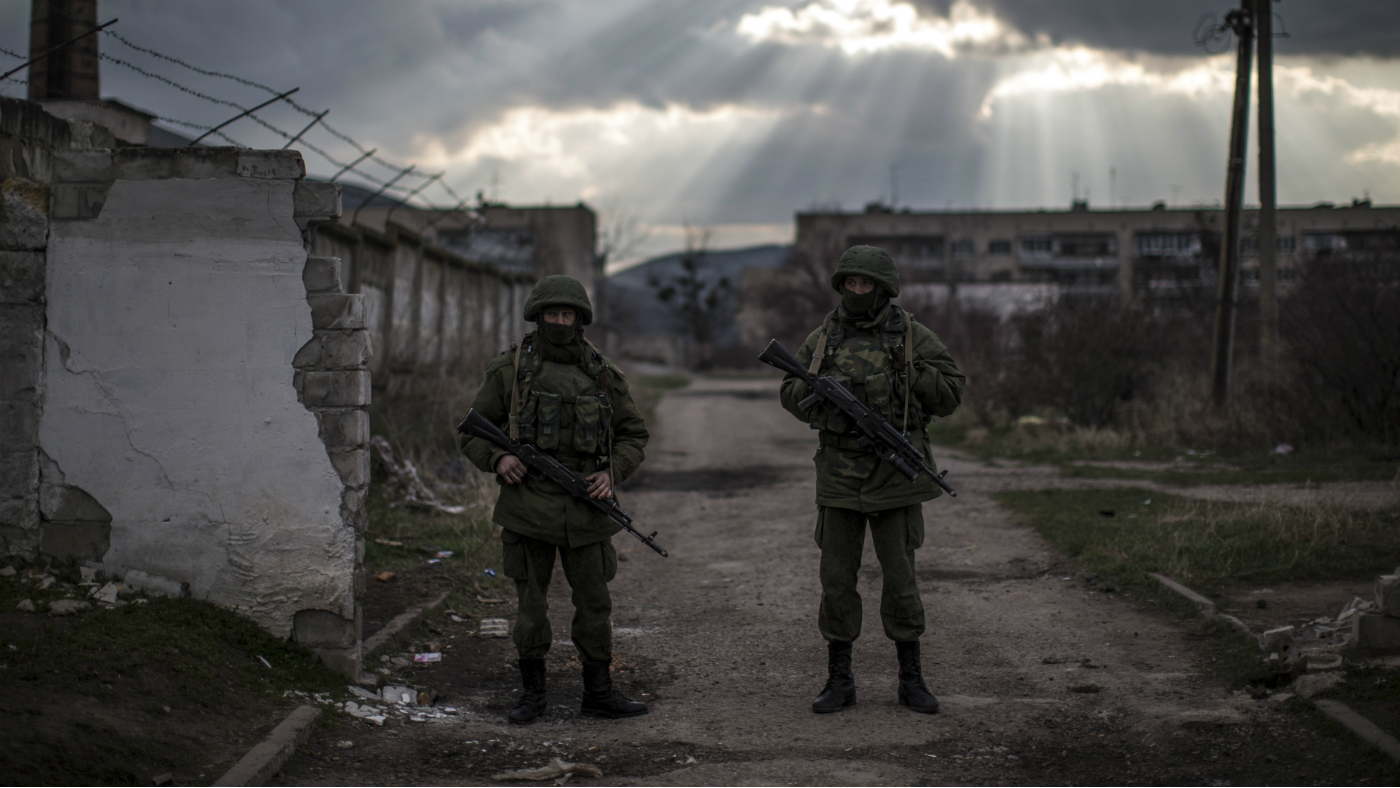Ukraine conflict: is an end in sight?
Zelensky and Putin meet in Paris for first ever peace talks, but Ukrainians fear their president will capitulate to Russians

A free daily email with the biggest news stories of the day – and the best features from TheWeek.com
You are now subscribed
Your newsletter sign-up was successful
After more than five years of war, the leaders of Ukraine and Russia will today hold their first face-to-face peace talks.
Since war broke out in 2014, more than 13,000 people have been killed in the fighting between the Ukrainian army and Russian-backed separatists, but today’s talks between Ukrainian President Volodymyr Zelensky and his Russian counterpart Vladimir Putin in Paris mean there is now a “slim hope” of a peace agreement, the Financial Times reports.
The meeting will also be attended by France’s President Emmanuel Macron and German Chancellor Angela Merkel, who have previously tried to broker a peace deal between Russia and Ukraine.
The Week
Escape your echo chamber. Get the facts behind the news, plus analysis from multiple perspectives.

Sign up for The Week's Free Newsletters
From our morning news briefing to a weekly Good News Newsletter, get the best of The Week delivered directly to your inbox.
From our morning news briefing to a weekly Good News Newsletter, get the best of The Week delivered directly to your inbox.
But with Ukrainian citizens fearing the possibility of the relatively inexperienced Zelensky ceding too much to Putin to bring an end to the conflict, what might today’s talks mean for Europe?
What’s on the agenda?
According to Bloomberg, Zelensky’s meeting with Putin will see the Ukrainian “looking to advance the promises for peace that swept him to power this year”, but what this could entail is so far a mystery.
Negotiations are likely to focus on the content of the 2014-15 Minsk peace agreement, France24 adds, which “provided for an immediate ceasefire in eastern Ukraine, the withdrawal of heavy weapons, the restoration of Kiev’s control over the border with Russia, and increased autonomy for territories under separatist control”.
A free daily email with the biggest news stories of the day – and the best features from TheWeek.com
The French broadcaster notes that while the agreement led to a significant reduction in violence after its creation in the wake of Russia’s annexation of Crimea, “its political components have never been implemented”.
Furthermore, the BBC reports that before the summit could take place, Zelensky “had to accept a 2016 deal granting special status to the separatist-held parts of Ukraine’s Donbass region, and troops had to disengage from three places on the frontline”.
The Ukrainian government is understood to be seeking a sustainable cease-fire in Donbass and the exchange of all prisoners.
–––––––––––––––––––––––––––––––For a round-up of the most important stories from around the world - and a concise, refreshing and balanced take on the week’s news agenda - try The Week magazine. Start your trial subscription today –––––––––––––––––––––––––––––––
What has the reaction been in Ukraine?
As a result of the earlier concessions by Zelensky, the atmosphere in Ukraine has grown tense over fears that the president might accept a peace deal at the cost of the country’s independence and sovereignty.
Voice of America says that rallies swept the capital Kiev over the weekend, where protesters were addressed by controversial former president Petro Poroshenko, a fiercely anti-Russian figure in Ukrainian politics.
“We are here so that the voice from Kiev can be heard in Paris,” he told the crowd on Sunday night. “Friends, we cannot make any concessions to Putin until the last sliver of Ukrainian land is free.”
Inna Sovsun, an opposition party politician, added: “We are here because we are not satisfied with the peace at any cost... the peace at the cost of capitulation.”
Hundreds of protesters were also seen holding signs reading “no capitulation”.
What might happen?
CNN reports that France and Germany are “expected to push Ukraine to fully adopt the so-called Steinmeier Formula”, an agreement which calls for the granting of special status and local autonomy to the occupied territories in eastern Ukraine.
This would effectively legitimise the Russian occupation of the Donbass, the BBC adds.
Another stumbling block appears to be Russia’s motives on the global stage. Zelensky’s “peace at any price” mantra, Forbes says, “gives Moscow leverage in negotiations”, particularly, adds Bloomberg, if Russia “retains its goal of keeping its neighbour from joining the EU and NATO”.
“For Zelensky, major concessions would risk a third revolution for the country in 15 years,” the news site adds.
A rather inflammatory proposal, however, was made earlier this week by Andriy Yermak, an aide to Zelensky. He told an audience at the Royal Institute of International Affairs in London that if the peace talks fail, Kiev will consider building a wall along its borders with Russia.
“Ukraine will do everything in order to stop this war and achieve peace in a non-military, peaceful way. But certainly we do have a plan B,” Yermak said.
“If we don’t see readiness from Russia to implement the Minsk Agreement or to move towards a peaceful solution with a clear cut time-frame, well in this case we’ll be building a wall.”